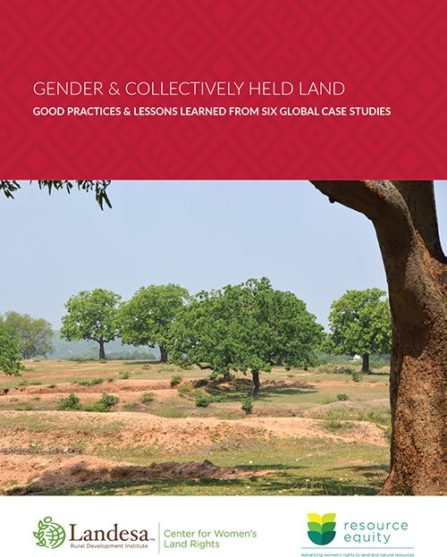SYNTHESIS REPORT – GENDER & COLLECTIVELY HELD LAND
GOOD PRACTICES AND LESSONS LEARNED FROM SIX GLOBAL CASE STUDIES
Many studies have shown the benefits to women of secure rights to land: when their rights are secure, their status in the community and within the household can increase, their income can increase, and they and their families are less likely to be underweight or malnourished.


